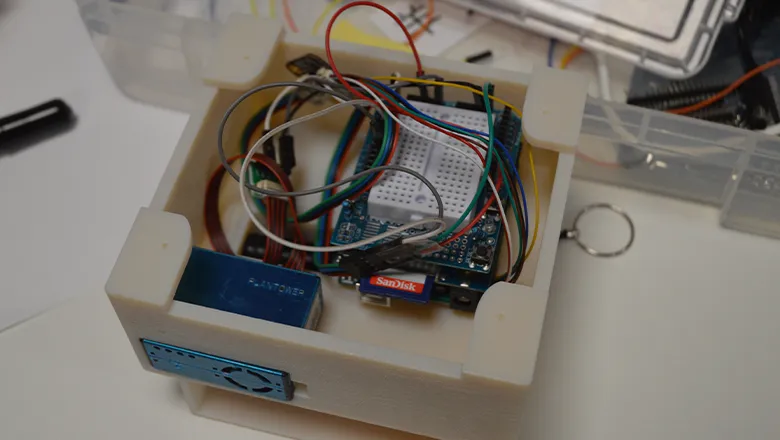When you see headlines like “air pollution hurts the poorest most”, it really brings home the need to do something to make air quality monitoring equipment both affordable and able to go where it’s needed, when it’s needed. Communities at every income level need access to local air-quality data to tackle this problem for themselves.
06 November 2019
King's Engineers developing pollution tracking device to support climate change action
A collaborative of researchers led by Dr Yansha Deng and Dr Daniel Schillereff from the Departments of Engineering and Geography are developing a low-cost air quality monitoring station to tackle data poverty and facilitate greater access to air quality monitoring.

This research project seeks to test the creation of mobile air quality monitoring stations. It was initiated at the King’s Summer School earlier in the year, where students designed and built early proof-of-concept prototypes of the monitoring model.
The project will be piloted by mounting low-cost air quality monitors onto a series of drones, in order to capture real-time sensing of air pollutants. The mobility of the drones enables the user to trace sources of air pollution, and facilitates formation of temporary, easily reconfigurable air quality monitoring networks for areas where installing a permanent network is either too expensive or logistically difficult.
The overarching aim of this research is to tackle data poverty – a term coined to characterise a lack of access to data that supports corrective action. In reducing costs, establishing monitoring networks and capturing subsequent air quality data, it is hoped that further advances in this research will pave the way for increasing the accessibility and volume of air quality monitoring to support climate change action, particularly in the Global South.
Commenting on inspiration underpinning the project, Yansha said;
Find out more about the King’s Summer School


